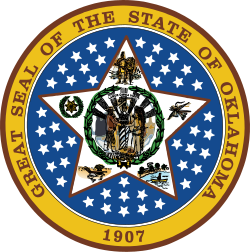November 4, 1930 | |||||||||||||||||
| |||||||||||||||||
 County results Murray: 50–60% 60–70% 70–80% 80–90% >90% Hill: 50–60% 60–70% | |||||||||||||||||
| |||||||||||||||||
| Elections in Oklahoma |
|---|
 |
The 1930 Oklahoma gubernatorial election was held on November 4, 1930, and was a race for Governor of Oklahoma. Democrat William H. 'Alfalfa Bill' Murray defeated Republican Ira A. Hill. Also on the ballot were Independent candidates B. G. Bingham and John Franing. [1]

